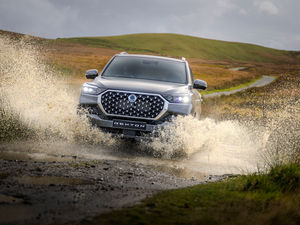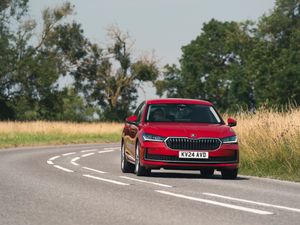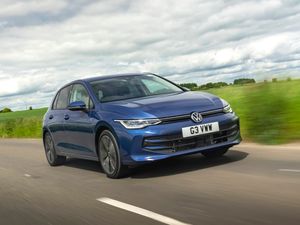First Drive: Polestar’s 4 aims to stand out with sharp tech and edgy look
The new 4 increases Polestar’s presence in the UK, but what can this low-down SUV offer? Jack Evans finds out.
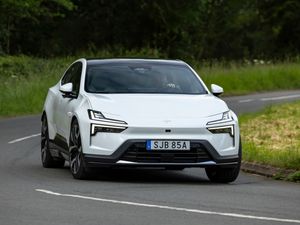
What is it?
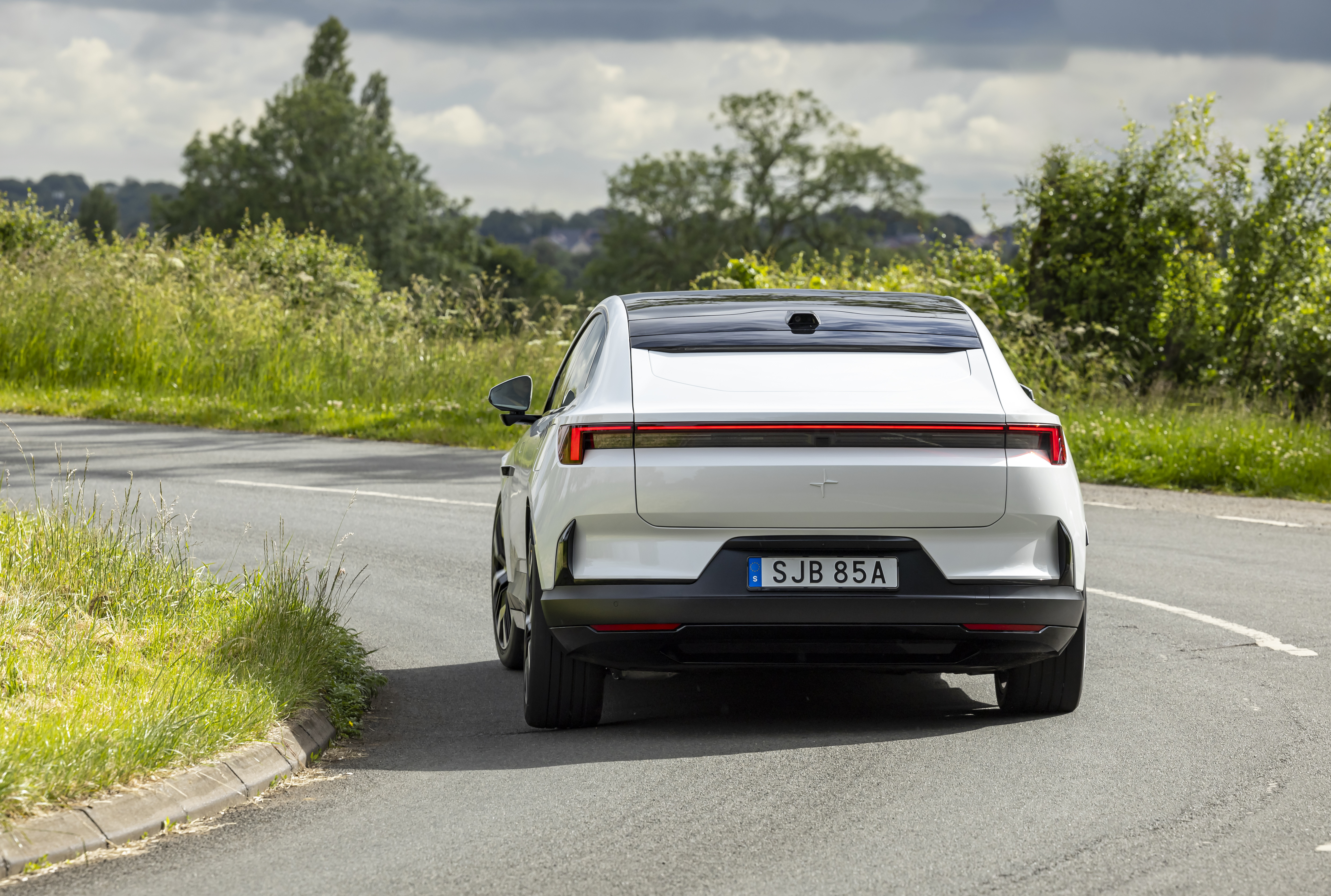
>
Polestar is ramping up its presence here in the UK. While it may have had its 2 on our roads for some time, it is expanding its model range here with a flurry of new models. We’ve already checked out the 3 SUV, but now things are taking a turn for the more dynamic with this – the 4.
Polestar classes it as an SUV, but to look at it’s a pseudo-crossover-style vehicle with a low-slung roof that leads into one of the 4’s most talked-about styling aspects – its complete lack of a rear window.
What’s new?
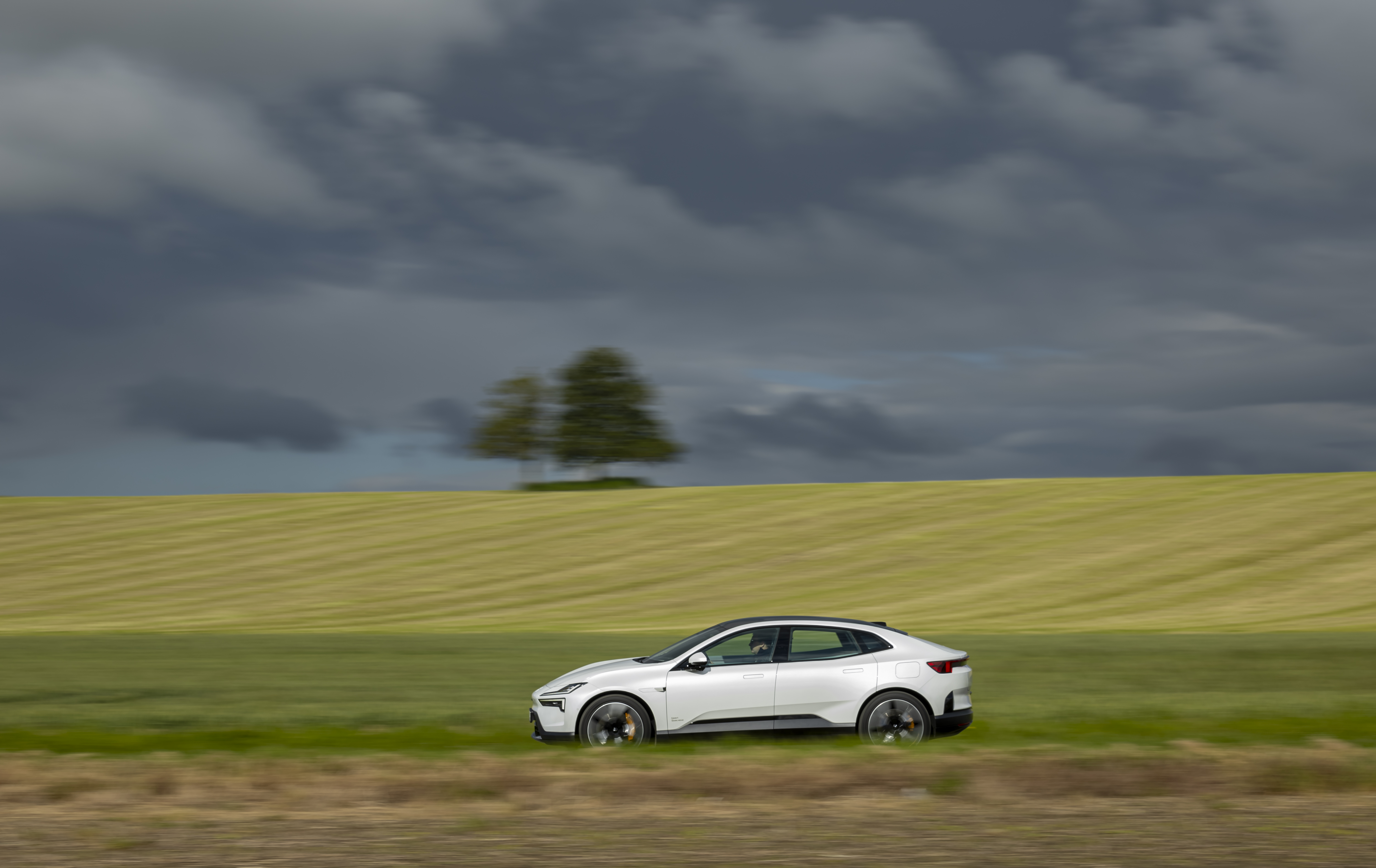
>
No glass section at the rear aside, there’s a lot else going on with the Polestar 4. Inside, we’ve got some of the latest technology that the brand has to offer, including a large infotainment system which runs Android’s Automotive software and brings all manner of readily-loaded apps such as Google Maps and Spotify.
In terms of positioning, Polestar puts the 4 in between the 2 and 3 – rather confusingly, numbers-wise. The exterior is entirely dictated by aerodynamics, though Polestar says that the lack of the rear screen allows the 4 to have the sloped roofline of a classic coupe but with the extra headroom that you’d expect from an SUV.
What’s under the bonnet?
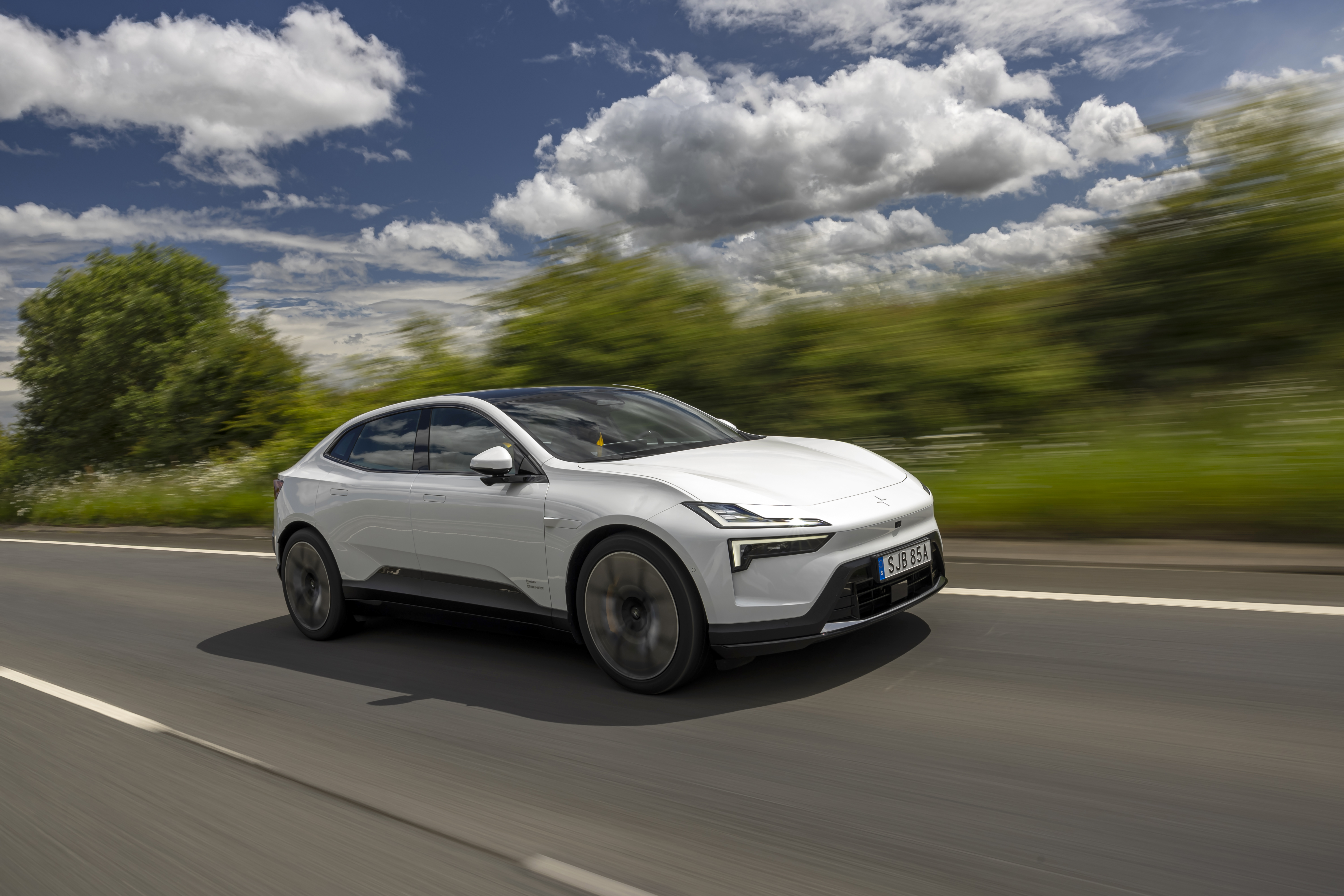
>
As with other Polestar models, you’ll be able to get the 4 in both single- and dual-motor setups. We’re in the 536bhp latter model here, which delivers 686Nm of torque in an instant to get the 4 from 0-60mph in just 3.7 seconds. It has pace on its side, that’s for sure.
When it comes to range, Polestar claims that this dual-motor version will manage up to 367 miles on a single charge, compared with the 385 miles you should get from the single-motor version – though both get the same 94kWh battery, which is large by modern EV standards.
What’s it like to drive?

>
A small software hiccup with the cars that we originally drove in Spain meant that a new driving route in the UK – this time with the correct programming – was required with the 4. However, that gave us a chance to see the 4 on our native roads which showed it up as a focused way of getting about. Naturally, the instant delivery of the torque ensures that the 4 feels very quick away from the lights, while body control is really good through the bends. It corners flatly and without any drama, despite its relatively large size. The steering isn’t all that communicative, however, and the ride remains quite firm for the UK.
At greater speeds, there is quite a lot of wind noise only highlighted further by the lack of any engine thrum. There was also a strange ‘boost’ of braking right at the end of the pedal press – such as when you’re approaching a roundabout – and this made the 4 a little difficult to stop smoothly. We’re told this issue is being ironed out, however.
How does it look?
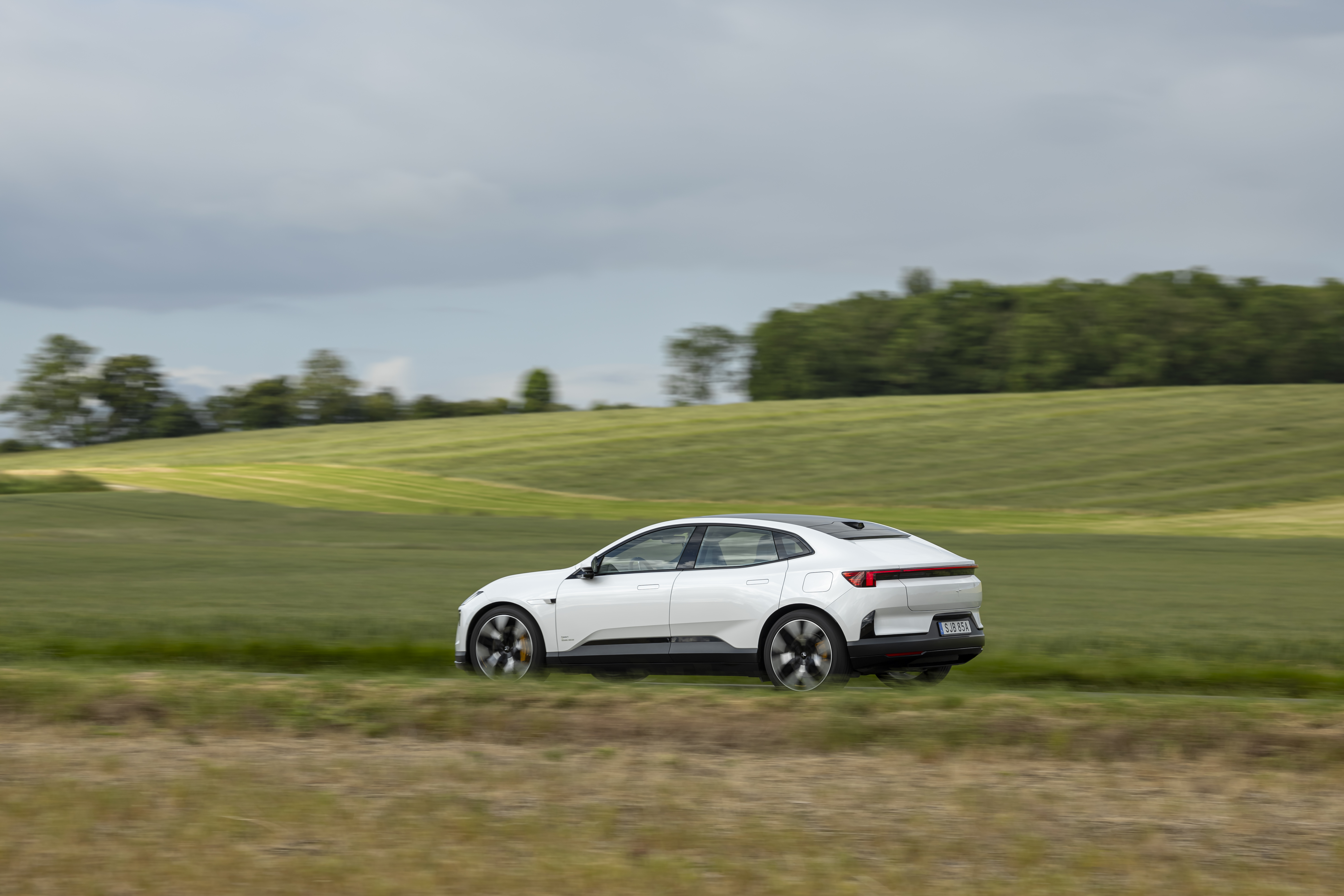
>
Polestar has stated that the 4’s design is all about aerodynamics and it’s fair to say that you can imagine this car effortlessly cutting through the air as it drives along. Is it a little too safe against the current crop of EVs? Not from the rear. That complete lack of rear glass gives the 4 a somewhat insect-like aesthetic that’ll definitely get people talking.
There is also a good number of exterior paint colours to choose from. A gold shade is a particularly eye-catching choice and one which provides a welcome change to the more usual whites and greys.
What’s it like inside?
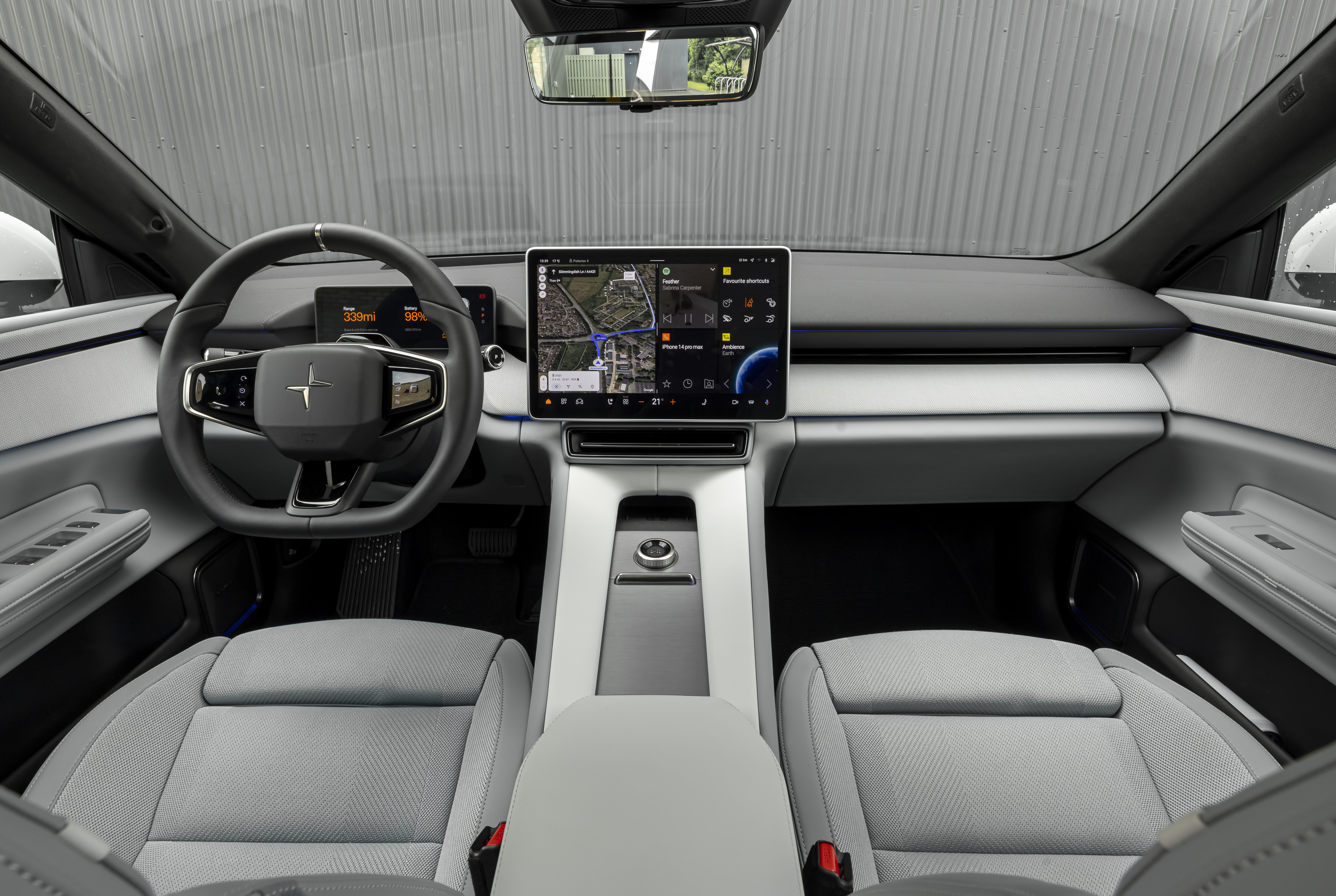
>
The lack of rear screen is meant to help boost rear-seat headroom while still allowing for a coupe-esque roofline. Does it work? Pretty much. Average-height rear seat passengers should be able to get comfortable and the flat floor means that there is a lot of room to stretch out. It’s got a limousine-like quality, while the large panoramic roof lets in plenty of light. It’s all beautifully put together, too, and there’s a genuinely premium feel to the whole cabin that could make German rivals nervous.
As with other Polestar models, there are plenty of recycled materials used throughout the 4, with a new ‘tailored knit’ upholstery – made from 100 per cent recycled polyester – a neat touch. The inlay carpets are made from recycled plastics, too, as are the floor mats.
What’s the spec like?

>
There’s plenty of equipment aboard the Polestar 4. Highlights include the 15.4-inch main display which is packed with information which might lead you to believe that it’d be complicated to operate but thanks to some logically designed menus it’s more hassle-free than you’d think. Finding your way through different settings is surprisingly breezy.
Drivers get a view of the road behind – despite the lack of rear glass – via a digital rear-view mirror which relays an image captured by the roof-mounted camera. Is it as intuitive as a regular mirror? Not to this tester. Sadly, your eyes find ‘regular’ glass much easier to focus on and checking the screen instead frequently makes you feel a bit queasy. Polestar says that it has done this to avoid having your rearward view blocked by the back seat headrests as in a ‘normal’ car – but if this is the solution, then why do all of its other vehicles not have a rear-window delete, too?
Verdict
We’ve already been impressed by the 3 – Polestar’s latest SUV. It’s comfortable, refined and well-made inside. The 4 has many of those same attributes, too, with great material quality inside and loads of clever technology that breezes over rival offerings. It’s got an impressive amount of range, too.
It just feels as though the 4 doesn’t quite know what it wants to be. Polestar bills it as a performance coupe SUV and while its straight-line acceleration ties into that, we’d rather see this car’s refinement boosted to make it a proper tourer, rather than struggling to translate a relatively big, heavy car into something it isn’t.


